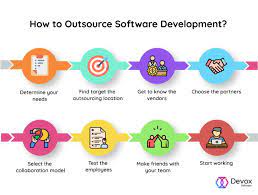Software is a general term used to describe computer programs or applications. It is a set of instructions that tells computers what tasks to perform. Software can be divided into two main categories: system software and application software. System software is responsible for the basic functioning of a computer, while application software is designed to perform specific tasks.
System software includes the operating system, which manages the resources of the computer, and device drivers, which allow hardware devices to interact with the operating system. Other types of system software include compilers, assemblers, linkers, and debuggers. These programs are used to develop other software applications.
Application software includes programs such as word processors, spreadsheets, web browsers, media players, and more. These programs are designed to help users accomplish specific tasks such as creating documents or playing music files. Application software can also be divided into two categories: desktop applications and mobile applications. Desktop applications are installed on a user’s computer and can be used without an internet connection. Mobile applications are designed for use on smartphones or tablets and require an internet connection in order to work properly.
Software has become an essential part of our daily lives, from running our computers to using our phones or tablets for entertainment or work purposes. Without it, many of the tasks we take for granted would be impossible or extremely difficult to accomplish. As technology continues to evolve, so does the need for more advanced and specialized software solutions that enable us to do more with less effort than ever before.
Here are 6 tips about software:
- Make sure to use the latest version of any software you are using.
- Back up all your data regularly, in case of a technical issue or system crash.
- Read the user manual thoroughly before using any software so that you can make best use of its features and functions.
- Regularly scan your computer for viruses and malware to keep it secure from cyber threats.
- Keep all your passwords secure, and change them often to ensure maximum security and privacy online.
- Only download software from trusted sources to avoid downloading malicious programs or viruses onto your computer
Make sure to use the latest version of any software you are using.
In the digital age, keeping up with the latest technology is essential for staying competitive. This is especially true when it comes to software. It is important to make sure that you are using the latest version of any software you are using.
By using the latest version of software, you can take advantage of all the new features and bug fixes that have been released since your last upgrade. This can help improve your productivity and efficiency, as well as help keep your data secure from potential threats. Additionally, staying up-to-date with the latest version of a software can also help you stay in compliance with industry standards and regulations.
It is also important to keep in mind that some older versions of a software may no longer be supported by its vendor. This means that if there are any security vulnerabilities or other issues, they may not be addressed or fixed if you are running an outdated version of a software. Therefore, it is important to check for updates regularly and make sure that you are running the most current version available.
Overall, it is essential to keep up with the latest versions of any software you are using. Doing so will help ensure that you are taking advantage of all the new features and bug fixes available, as well as help protect your data from potential threats.
Back up all your data regularly, in case of a technical issue or system crash.
In this digital age, it is essential to back up all of your data regularly. This is especially true in the event of a technical issue or system crash. A system crash can occur at any time, and if you have not backed up your data, you may lose important files and documents.
Fortunately, backing up your data is relatively simple. There are a variety of ways to do this, such as cloud storage services or external hard drives. It is important to ensure that you are backing up all of your data, including photos, videos, music, documents, and more. Additionally, it is best to back up your data on a regular basis so that you always have the most recent version of your files saved.
Backing up your data regularly will help protect you from the consequences of a system crash or technical issue. It is an easy way to ensure that all of your important files and documents are safe and secure in the event of an unexpected issue with your computer or device.
Read the user manual thoroughly before using any software so that you can make best use of its features and functions.
Using software can be a daunting task, especially if you are unfamiliar with it. However, with the right preparation and knowledge, you can make the most of any software’s features and functions. One of the best ways to do this is to read the user manual thoroughly before using any software.
The user manual is designed to provide an overview of the software’s capabilities and how to use them effectively. It will also explain how to navigate the interface and how to customize settings for your specific needs. By taking the time to read through it carefully, you can ensure that you are making the most out of all of its features and functions.
In addition, reading through the user manual can also help you identify potential problems before they arise. This can save you from headaches down the line as well as prevent costly mistakes in your work.
Overall, taking a few moments to read through a software’s user manual before using it can save you time and frustration in the long run. It will help you make sure that you are getting the most out of its features and functions so that your work is as efficient as possible.
Regularly scan your computer for viruses and malware to keep it secure from cyber threats.
Nowadays, cyber threats are a real danger that can harm your computer and data. To protect yourself from these threats, it is important to regularly scan your computer for viruses and malware.
Scanning your computer on a regular basis will help detect any malicious programs that may be present on your system. This will ensure that any malicious software is detected and removed before it can cause any damage to your system. Additionally, it will help keep your system secure from future attacks by ensuring that any new threats are identified and stopped before they can cause any harm.
It is important to note that scanning for viruses and malware should be done regularly in order to ensure the security of your system. It is also important to keep your antivirus software up-to-date in order to have the best protection against cyber threats. By taking these steps, you can protect yourself from cyber threats and keep your computer safe.
Keep all your passwords secure, and change them often to ensure maximum security and privacy online.
With the ever-increasing threat of cybercrime, it is essential to keep your passwords secure and change them often to ensure maximum security and privacy online. Passwords are the first line of defense against malicious actors, so it is important to choose strong passwords that cannot be easily guessed or cracked. Complex passwords should include a combination of upper and lower case letters, numbers, and special characters.
It is also important to not use the same password for multiple accounts. If a malicious actor gains access to one account, they will be able to access all other accounts associated with that same password. To prevent this from happening, create unique passwords for each account and regularly change them. This will help protect your data from potential breaches.
Finally, it is important to store your passwords securely in a password manager or other secure location. This will ensure that if you forget a password, you can easily retrieve it without having to reset the account or provide personal information.
By following these simple tips, you can help protect yourself from potential cyber threats while still maintaining your privacy online.
Only download software from trusted sources to avoid downloading malicious programs or viruses onto your computer
In the digital age, it is important to take steps to ensure your computer is secure and protected from malicious programs or viruses. One of the most important steps you can take is to only download software from trusted sources.
When downloading software, it is important to make sure it comes from a legitimate source. This could be a legitimate website, such as the official website of the software developer, or a reputable online store such as the Apple App Store or Google Play Store. You should also make sure to read reviews of the software before downloading it, to make sure there are no reports of malicious activity associated with it.
Downloading software from untrusted sources can put your computer at risk for downloading malicious programs or viruses. These malicious programs can cause serious damage to your computer and may even steal sensitive information such as passwords or credit card numbers. It is important to be aware of these risks and take steps to protect your computer by only downloading software from trusted sources.




